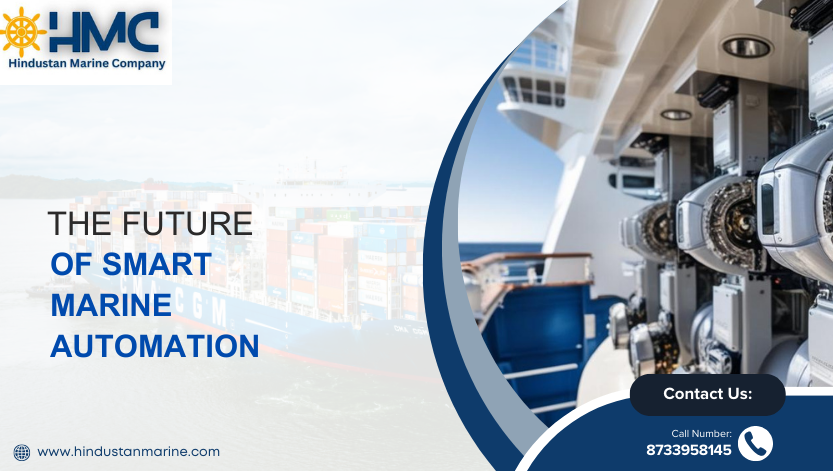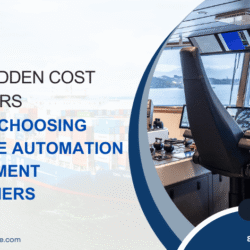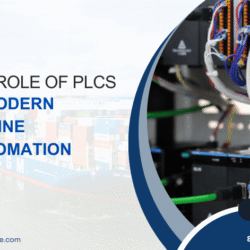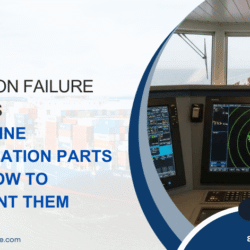
The Future of Smart Marine Automation
The marine industry is riding the wave of smart automation; everything is changing at breakneck speed-from navigation to safety to efficiency. With the state-of-the-art technology, companies in the marine industry need to prepare for the future where navigation is automated.
We are now in the era of smart marine automation, where precision meets comfort.
Let’s read on about what’s on the way in the marine industry.
The Rise of Smart Navigation and Autopilot Systems
The days of solely relying on manual navigation have almost faded. Nowadays, intelligent navigation systems integrate the AI autopilots to allow vessels to chart the safest possible and most efficient routes with little or no human intervention. With advanced GPS, AI chart plotters, and real-time weather data, route planning becomes easier and risk-bearing, and fuel consumption declines. Innovations include:
- Automated Route Planning: GPS-driven systems determine the optimum route while considering weather, tide, and vehicular traffic.
- Autopilot with AI Adjustments: Autopilot systems have incorporated AI to enable dynamic adjustments according to wind, waves, and other obstacles.
- Collision Avoidance Technology: Advanced smart sensors, including radar and sonar detect potential hazards in real-time, hence safer voyages.
For marine businesses, these advances mean reduced disruptions in operations, increased efficiency, and a low margin for errors.
Remote Monitoring and Control Systems
Smart marine automation offers business owners and operators the ability to monitor and control their vessel systems remotely. Now, these are such novel solutions that can give all indications from checking up fuel levels, to reporting on engine health, or even checking on any onboard security systems. The new monitoring solutions offer real-time data from mobile devices.
Some revolutionary features include:
- Engine & Battery Monitoring: Immediate alerts for performance issues, fuel inefficiencies/performance problems, or possible failure.
- Environmental and Security Sensors: Monitoring leakages, water levels, and unauthorized access as a measure of security on the vessel.
- Geofencing & Tracking: GPS-enabled alert systems for theft or any unauthorized movements.
Remote monitoring in itself saves on maintenance costs and security as well as improving operational efficiencies.
Energy Management & Sustainability
The fuel prices on the rise, along with environmental challenges, naturally would pose stiff challenges for the smart facets of fuels within the maritime industry. The most advanced energy management systems are now coupled with smart marine automation systems for optimal energy consumption.
Recent Advances among those:
- Hybrid and Electric Propulsion – AI enables energy distribution to achieve optimization in efficiency.
- Solar Power Integration – Intelligent controllers manage optimizations of battery lifetimes through the consumption of solar energy.
- LED and Automated Lighting- Increase or decrease the usage of light as required, eliminating electricity wastage.
Implementing such energy-efficient systems, the marine industries not only save operational costs but also adhere to the universal sustainability standards.
Smart Safety and Security Systems
Safety in the marine sector has always been the priority. Automated systems are stepping up to further enhance safety features. Modern advanced monitoring and emergency response systems ensure that ships are kept safe in any condition.
Great achievements include the following:
- Man Overboard Detection: Smart wearables can alert the system in case of a crew member going overboard.
- Fire and Leak Detection Sensors: AI sensors can instantly detect smoke, gas leakage, or breach from water.
- Enhanced Communication Systems: Face-to-face messaging to emergency services for immediate assistance.
Such inventions will not only create a good safety record for fleet operators and vessel owners but will also help mitigate the risk of liability.
The Internet of Things (IoT) in Marine Automation
Where marine automation is concerned, the IoT is a backbone, interlinking multiple onboard systems for seamless functioning. IoT-equipped ships can automatically diagnose faults, enhance performance, and schedule maintenance.
Business benefits of IoT integration:
- Predictive maintenance so that costly breakdowns can be avoided by resolving potential failures before they take place.
- AI analyzes fuel consumption and speed patterns to maximize performance, leading to data-driven optimization.
- IoT devices integrate the systems for effortless onboard operations.
Autonomous Vessels: The Future of Shipping
Autonomous vessels will probably be a reality even before we know it, as many leading companies such as Rolls-Royce and Wärtsilä have already developed smart marine automation solutions designed to reduce human intervention to the utmost extent.
Industrial leaders in innovation:
–Rolls-Royce’s Intelligent Awareness: Uses radar, LIDAR, and HD cameras in a 360-degree navigation capability. For the marine industry, autonomous vessels promise safer, more cost-effective, and highly efficient operations.
–Wärtsilä’s Smart Marine Ecosystem: Integrates autonomous navigation with power-assisted fuel economy by AI.
What to Expect in 2024 & Beyond
Smart automation isn’t coming—it’s already here.
The maritime automation game will not stop here. The next generation of smart ships will continue to evolve with AI, IoT, and machine learning. The integration would be deeper and efficiencies will rise along with the safe operations across the industry.
Are You Ready to Future-Proof Your Fleet?
Hindustan Marine Company brings the world’s foremost marine automation solutions for your business. Be it smart navigation, energy management, or remote monitoring, we’ve got you covered.
Be a part of the smart marine revolution! Explore Rolls-Royce’s best marine automation systems on our website and get in touch to learn more about the features. We would love to help you out.





 Fast Delivery
Fast Delivery Easy Returns
Easy Returns Instant Quote
Instant Quote Product Demo
Product Demo